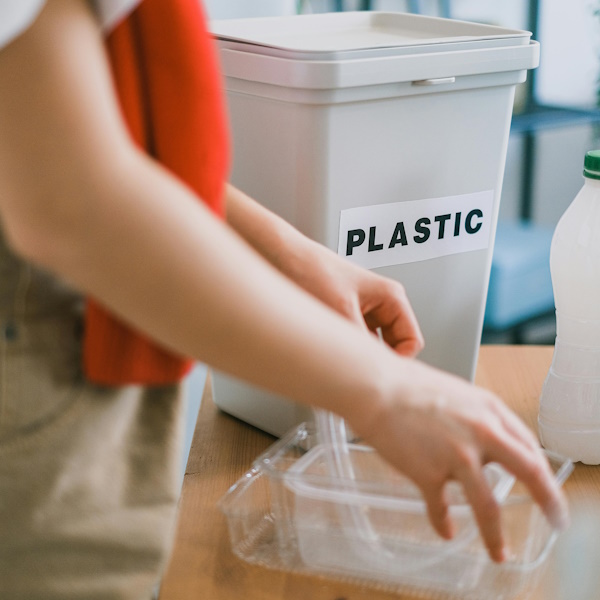Guide to Demanding Sustainable Products for a Greener Future
In today's world, you're not just a consumer; you're a change-maker. Every purchase you make sends a powerful message about the kind of world you want to live in. That's why demanding sustainable products isn't just a trend—it's a movement. A movement towards a healthier planet and a brighter future for generations to come.
As you navigate the aisles or scroll through online stores, you're faced with countless choices. But here's the thing: opting for sustainable products isn't just good for the earth; it's also a statement about your values. It's about choosing quality over quantity, longevity over disposability. And let's be honest, it feels good to know you're part of the solution, not the problem.
The Power of Consumer Choices
Every purchase you make sends a signal to businesses about what you value. When you opt for sustainable products, you're not just buying a good or service; you're voting for a healthier planet. It's a powerful statement that signals to manufacturers and retailers alike that there's a growing demand for products that prioritize environmental responsibility over mere profitability.
Sustainability is no longer a niche market. A significant shift has occurred in consumer preferences, with a rising number of you looking for products that promise less harm to the environment. This change has pushed companies, big and small, to rethink their strategies and incorporate sustainable practices into their operations. By choosing sustainable options, you're part of a collective force driving this positive change.
Here are a few ways your choices impact the market:
- Demand Drives Supply: The more you demand sustainable products, the more companies will strive to meet that demand. This can lead to a broader selection of eco-friendly options available in the market.
- Influences Product Innovation: Your preference for sustainable goods encourages businesses to innovate and develop new, eco-friendly products and solutions.
- Economic Signals: When companies notice a shift in consumer spending towards sustainable products, they realize it's not just a trend but a movement. This can encourage more significant investments in sustainability.
Remember, every product you choose not to buy is also a statement. Opting out of purchasing items from companies that neglect their environmental responsibilities sends a clear message that it's time for change. Your spending power is influential, and when used wisely, it can contribute to the conservation of our planet's resources for future generations.
Making informed choices about what you buy can be a daunting task, yet it's essential for fostering a sustainable future. Start small by focusing on one area—like reducing single-use plastics or supporting local businesses—and gradually expand your efforts as you learn more. You'll find that every small change contributes to a larger impact, encouraging a ripple effect that transforms industries and preserves the environment.
Understanding Sustainable Products
When you're on the hunt for sustainable products, it's essential to know what exactly qualifies something as 'sustainable.' Sustainable products are those that provide environmental, social, and economic benefits while protecting public health and the environment over their whole life cycle, from the extraction of raw materials until the final disposal.
Firstly, sustainable products are designed with consideration for their long-term impact on the planet. This means they're often made from renewable resources, involve fair labor practices, and have a minimal environmental footprint in terms of both production and disposal. For example, a product made from recycled materials that can be recycled again after its lifespan embodies the principles of sustainability through its reduced need for new raw materials and lower waste generation.
Here are some key features you should look for in sustainable products:
- Materials: Prefer products made from recycled or renewable resources.
- Energy Efficiency: Choose items that require less energy to produce and use.
- Longevity and Durability: Opt for products that promise a longer lifespan, reducing the need for frequent replacements.
- Certifications: Look for reputable third-party certifications, like the Fair Trade Certification or the Global Organic Textile Standard (GOTS), as indicators of sustainability.
Understanding the criteria for sustainable products allows you to make more informed shopping decisions. By demanding goods that meet these standards, you're not only investing in items that are better for the environment but also encouraging manufacturers to adopt more eco-friendly practices. This collective consumer behavior can dramatically shift market trends towards sustainability, proving that your purchases have the power to make a significant impact.
Benefits of Demand for Sustainable Products
When you choose sustainable products, you're not just making a statement about your values; you're also contributing to a larger, positive change in the market. The rising demand for eco-friendly products encourages businesses to incorporate sustainable practices, leading to significant benefits both for the planet and society.
Environmental Sustainability is at the forefront of the benefits. By prioritizing products that use fewer natural resources and minimize pollution, you help preserve ecosystems and reduce your carbon footprint. This shift in consumer behavior can significantly lower the global demand for raw materials, leading to less habitat destruction and a healthier planet.
On the economic front, demanding sustainable products stimulates innovation and competitiveness among companies. As businesses strive to meet consumer expectations, they often invest in greener technologies and materials. This Innovation in Sustainability not only leads to more efficient production processes but also creates new job opportunities within the green economy.
| Impact | Benefit |
|---|---|
| Environmental Sustainability | Preserves ecosystems, reduces pollution, and lowers carbon footprint. |
| Economic Growth | Stimulates innovation, creates jobs in the green sector, and promotes competitiveness. |
Moreover, supporting sustainable products often means supporting ethical labor practices. Many eco-friendly brands are committed to fair trade and ensuring that workers within their supply chain are treated and paid fairly. By choosing these products, you're advocating for social justice and contributing to the improvement of working conditions globally.
As you consider your choices, remember that every purchase is a vote. Opting for sustainable products not only aligns with your values but also drives companies to adopt more responsible practices. This cycle of demand and supply can significantly alter the landscape of production and consumption, steering us towards a more sustainable future.
How to Identify Sustainable Products
Identifying sustainable products may seem like navigating through a maze, but with a few tips, you'll be on your way to making more environmentally-friendly choices. Certifications are your first clue. Look for labels such as Fair Trade, Organic, or Energy Star. These certifications mean the product meets specific sustainability standards, ensuring that your purchase supports ethical and eco-friendly practices.
Next, consider the materials and ingredients. Sustainable products often use recycled, biodegradable, or sustainably sourced materials. When shopping for food, beauty products, or cleaning supplies, opt for items with natural ingredients over those filled with chemicals and synthetics. Not only are these better for the environment, but they're also healthier for you.
Another critical factor is packaging. Companies committed to sustainability typically minimize their use of packaging or choose recyclable and compostable options. If you're torn between two products, pick the one with less packaging or packaging made from recycled materials.
Don't overlook the company's values and practices. A quick online search can reveal a lot about a company’s commitment to sustainability. Look for businesses that are transparent about their supply chain, invest in renewable energy, and actively strive to reduce their carbon footprint. Supporting these companies means your money is going towards businesses that prioritize the planet.
Remember, identifying sustainable products isn't just about what you're buying but also about who you're buying from. By choosing products that are certified, responsibly sourced, minimally packaged, and made by companies with strong environmental ethics, you're making a decision that aligns with your values and supports a more sustainable future.
Making Sustainable Choices in Everyday Life
Making sustainable choices isn't just a one-time decision; it's a lifestyle. Every day, you're faced with decisions that can either support or undermine the health of our planet. From the coffee you drink in the morning to the method you choose to commute, every choice counts.
Opt for Reusable Over Single-Use items whenever possible. This could mean carrying a reusable water bottle, using cloth shopping bags instead of plastic, or choosing to purchase products with less packaging. By doing so, you're directly reducing the amount of waste that finds its way into landfills and oceans.
Support Local Businesses that are dedicated to sustainable practices. These businesses often source their materials locally, reducing the carbon footprint associated with transportation. Moreover, they're more likely to use environmentally friendly manufacturing methods and to treat their workers fairly. Shopping local isn't just good for the environment; it supports your community's economy as well.
Energy Usage plays a pivotal role in sustainability. Be conscious of your energy consumption at home and work. Simple actions like turning off lights when not in use, opting for energy-efficient appliances, and reducing water waste can have a significant impact. Consider renewable energy sources, such as solar panels, which can reduce reliance on fossil fuels and lower your carbon footprint.
Green Transportation is another avenue where you can make a substantial difference. If feasible, choose to walk, bike, or use public transportation instead of driving. For longer distances, carpooling is a great option. These methods not only lessen pollution and traffic congestion but also benefit your health and wallet.
Making sustainable choices is about more than just the products you buy; it's about how you integrate sustainability into every aspect of your daily life. By paying attention to these areas, you're contributing to a larger cultural shift towards sustainability that can lead to lasting environmental benefits.
Conclusion
Embracing sustainability isn't just a trend; it's a commitment to a healthier planet and a more responsible lifestyle. Your choices, from the products you buy to the way you live your daily life, play a crucial role in shaping a sustainable future. Remember, opting for sustainable products isn't just about the environment—it's about taking a stand for ethical practices, supporting local economies, and fostering innovation in green technology. Let's make every decision count. Start small, think big, and watch as your efforts contribute to a global movement towards sustainability. Together, we can make a difference.







